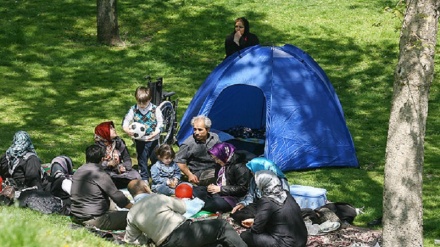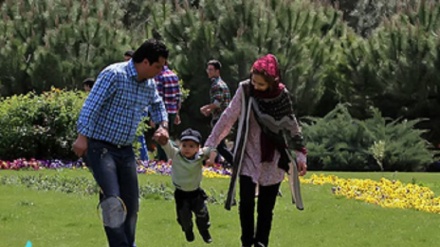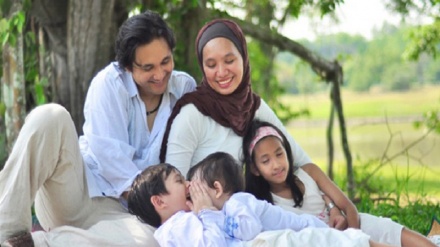Iranian Family (48)
In the contemporary world, families have encountered important changes, with family values and culture being impacted with the tools of modernity. Nonetheless, families have continued to maintain their decisive and influential role in the community, and in granting peace of mind to members of the society.
In facts, to this day, no replacement has been found for the highly important role that family upbringing plays in the human community. Today, we express the views of thinkers in regards to the foundations of family, in order to once again prove the solid and concrete status of family in the community, despite the blows that have been dealt against it.
Some sociologists opine that in the contemporary era, the global transition from traditions into modernity has sparked rifts within the Iranian community and families. A key Iranian expert refers to the rapid growth of cyberspace in the present era, noting a surge in vulnerability of families in parallel with the growing presence of the cyberspace and social networks in Iran. This Iranian expert refers to the rise in the age of marriage, growing tendencies toward individualism, a change in married couple's expectations, a surge in divorce cases, and extramarital affairs, as major vulnerabilities that shake the foundations of families.
Meanwhile, Tehran University Professor of Sociology, Dr. Azad Armaki, says that we are experiencing a series of structural changes in families, however, this doesn't necessarily mean that the foundations of family have been called into question.
This expert notes that the present deeds of the Iranian families are not different as such to the functions of families in the past, and present day Iranian families also fulfill tasks such as conveyance of kindness, love, attention to children, and peaceful and amicable co-existence. These elements and dimensions which are displayed in the present day Iranian families, are living proof of the durability and sustainability of the foundations of family, manifesting that Iranian families continue to play their positive roles, despite experiencing a number of changes. Thus, labeling these changes as threats, stems from an inappropriate understanding of the conditions and factors that have prompted changes.
Tehran University Lecturer, Dr. Sarukhani, reminds that that the Iranian community is one of the most dynamic societies in the world. In the past, within married couples, men had the first say. However, in the present day families, this is not the case, and the married man and woman build up their married lives in close cooperation, jointly participating in decision-makings.
A prominent Iranian sociologist underscores that the statistical figures do not convey the possible collapse of families. In the present day Iranian community, families continue to maintain their solid foundations, providing an appropriate upbringing for children, and preparing their offspring for their future roles in the community. Iranian parents continue to spend quality time with their children, and provide loving support for their offspring. In the meantime, adult married children maintain their relations with their parents in Iran. In fact, Iranian parents and children establish and maintain powerful and sustainable emotional bonds.
Undoubtedly, the main reason behind the durability of Iranian families is their religious and cultural beliefs and values. The divine religion of Islam highly elevates and honors the foundations of family, noting that the prosperity or failure of human community is tied to appropriateness or corruption of families. The goal behind establishment of family is meeting the material, emotional, and spiritual needs of mankind such as attainment of peace of mind, which is based on kindness and amity.
Sociologists in different communities believe that whenever the members of the community do not play their familial roles, the community loses its driving force. The formation of healthy and progressive families is tied to investing and supporting the foundations of this sacred unit of the society. Communities are shaken in the absence of families.
MR/ME


